|
Books Should Be Free Loyal Books Free Public Domain Audiobooks & eBook Downloads |
|
|
Books Should Be Free Loyal Books Free Public Domain Audiobooks & eBook Downloads |
|
Books on Politics |
|---|
|
Book type:
Sort by:
View by:
|
By: J. W. (John Wesley) Dafoe (1866-1944) | |
|---|---|
 Laurier: A Study in Canadian Politics
Laurier: A Study in Canadian Politics
| |
By: Benjamin Perley Poore (1820-1887) | |
|---|---|
 Perley's Reminiscences, v. 1-2 of Sixty Years in the National Metropolis
Perley's Reminiscences, v. 1-2 of Sixty Years in the National Metropolis
| |
By: Thomas Hart Benton (1782-1858) | |
|---|---|
 Thomas Hart Benton's Remarks to the Senate on the Expunging Resolution
Thomas Hart Benton's Remarks to the Senate on the Expunging Resolution
| |
By: J. Hampton (Joseph Hampton) Moore (1864-1950) | |
|---|---|
 How Members of Congress Are Bribed
How Members of Congress Are Bribed
| |
By: James K. (James Knox) Polk (1795-1849) | |
|---|---|
 State of the Union Address
State of the Union Address
| |
By: Dwight D. (Dwight David) Eisenhower (1890-1969) | |
|---|---|
 State of the Union Address
State of the Union Address
| |
By: William Ferneley Allen | |
|---|---|
 The Corporation of London, Its Rights and Privileges
The Corporation of London, Its Rights and Privileges
| |
By: Agnes E. Ryan (1878-1954) | |
|---|---|
 The Torch Bearer A Look Forward and Back at the Woman's Journal, the Organ of the Woman's Movement
The Torch Bearer A Look Forward and Back at the Woman's Journal, the Organ of the Woman's Movement
| |
By: Thomas Erskine Holland (1835-1926) | |
|---|---|
 Letters to "The Times" upon War and Neutrality (1881-1920)
Letters to "The Times" upon War and Neutrality (1881-1920)
| |
By: James Hannay (1842-1910) | |
|---|---|
 Wilmot and Tilley
Wilmot and Tilley
| |
By: J. Ellis Barker (1870-1948) | |
|---|---|
 British Socialism An Examination of Its Doctrines, Policy, Aims and Practical Proposals
British Socialism An Examination of Its Doctrines, Policy, Aims and Practical Proposals
| |
By: Lyndon B. (Lyndon Baines) Johnson (1908-1973) | |
|---|---|
 State of the Union Address
State of the Union Address
| |
By: Benjamin Harrison (1833-1901) | |
|---|---|
 State of the Union Address
State of the Union Address
| |
By: Christopher Evans (1847-1917) | |
|---|---|
 Eurasia
Eurasia
| |
By: Charles E. Morris | |
|---|---|
 The Progressive Democracy of James M. Cox
The Progressive Democracy of James M. Cox
| |
By: John Sherman (1823-1900) | |
|---|---|
 Recollections of Forty Years in the House, Senate and Cabinet An Autobiography.
Recollections of Forty Years in the House, Senate and Cabinet An Autobiography.
| |
By: F. J. C. (Fossey John Cobb) Hearnshaw (1869-1946) | |
|---|---|
 Freedom In Service Six Essays on Matters Concerning Britain's Safety and Good Government
Freedom In Service Six Essays on Matters Concerning Britain's Safety and Good Government
| |
By: Intercollegiate Peace Association | |
|---|---|
 Prize Orations of the Intercollegiate Peace Association
Prize Orations of the Intercollegiate Peace Association
| |
By: Henry de Rosenbach Walker (1867-) | |
|---|---|
 Australasian Democracy
Australasian Democracy
| |
By: Chester Alan Arthur (1830-1886) | |
|---|---|
 State of the Union Address
State of the Union Address
| |
By: Gerald R. Ford (1913-) | |
|---|---|
 State of the Union Address
State of the Union Address
| |
By: Jimmy Carter (1924-) | |
|---|---|
 State of the Union Address
State of the Union Address
| |
By: Henry C. Northam | |
|---|---|
 Civil Government for Common Schools
Civil Government for Common Schools
| |
By: California. State Board of Charities and Corrections | |
|---|---|
 Rules and regulations governing maternity hospitals and homes ... September, 1922
Rules and regulations governing maternity hospitals and homes ... September, 1922
| |
By: Samuel Merwin and Henry Kitchell Webster (1874-1936 and 1875-1932) | |
|---|---|
 The Short Line War
The Short Line War
"The Short Line War is a story that will appeal more particularly to the sterner sex, and we take it that the hyphenated name, Merwin-Webster, stands for two healthy-minded young men who have put their heads together and who have mapped out this story of a railroad war, in which politics form a considerable part. Jim Weeks is the central figure in the fight, and we like him so much better for knowing of the romance in his early life. He was a man 'without much instinct or imagination; he took everything seriously and literally, he could not understand a whim'--therefore a very foolish little woman came into his life only to leave it desolate... | |
By: James Monroe (1758-1831) | |
|---|---|
 State of the Union Address
State of the Union Address
| |
By: Addie Chisholm | |
|---|---|
 Why and How : a hand-book for the use of the W.C.T. unions in Canada
Why and How : a hand-book for the use of the W.C.T. unions in Canada
| |
By: Adlai E. (Adlai Ewing) Stevenson (1835-1914) | |
|---|---|
 Something of Men I Have Known With Some Papers of a General Nature, Political, Historical, and Retrospective
Something of Men I Have Known With Some Papers of a General Nature, Political, Historical, and Retrospective
| |
By: Augustus Bridle (1869-) | |
|---|---|
 The Masques of Ottawa
The Masques of Ottawa
| |
By: Shelby M. (Shelby Moore) Cullom (1829-1914) | |
|---|---|
 Fifty Years of Public Service Personal Recollections of Shelby M. Cullom, Senior United States Senator from Illinois
Fifty Years of Public Service Personal Recollections of Shelby M. Cullom, Senior United States Senator from Illinois
| |
By: King of the Hawaiian Islands Kamehameha IV (1834-1863) | |
|---|---|
 Speeches of His Majesty Kamehameha IV. To the Hawaiian Legislature
Speeches of His Majesty Kamehameha IV. To the Hawaiian Legislature
| |
By: Franklin Pierce (1804-1869) | |
|---|---|
 State of the Union Address
State of the Union Address
| |
By: Emma Guy Cromwell (1865-1952) | |
|---|---|
 Citizenship A Manual for Voters
Citizenship A Manual for Voters
| |
By: William Fayette Fox (1836-1909) | |
|---|---|
 Civil Government of Virginia
Civil Government of Virginia
| |
By: Millard Fillmore (1800-1874) | |
|---|---|
 State of the Union Address
State of the Union Address
| |
By: Andrew Johnson (1808-1875) | |
|---|---|
 State of the Union Address
State of the Union Address
| |
By: George Washington Julian (1817-1899) | |
|---|---|
 Political Recollections 1840 to 1872
Political Recollections 1840 to 1872
| |
By: John Tyler (1790-1862) | |
|---|---|
 State of the Union Address
State of the Union Address
| |
By: Warren G. (Warren Gamaliel) Harding (1865-1923) | |
|---|---|
 State of the Union Address
State of the Union Address
| |
By: J. W. (James William) Sullivan (1848-) | |
|---|---|
 Direct Legislation by the Citizenship through the Initiative and Referendum
Direct Legislation by the Citizenship through the Initiative and Referendum
| |
By: William Horatio Barnes | |
|---|---|
 History of the Thirty-Ninth Congress of the United States
History of the Thirty-Ninth Congress of the United States
| |
By: David Dudley Field (1805-1894) | |
|---|---|
 The Vote That Made the President
The Vote That Made the President
| |
 The Electoral Votes of 1876 Who Should Count Them, What Should Be Counted, and the Remedy for a Wrong Count
The Electoral Votes of 1876 Who Should Count Them, What Should Be Counted, and the Remedy for a Wrong Count
| |
By: Franklin Hichborn (1869?-1964) | |
|---|---|
 Story of the Session of the California Legislature of 1909
Story of the Session of the California Legislature of 1909
| |
By: T. R. (Thomas Ramsden) Ashworth (1864-1935) | |
|---|---|
 Proportional Representation Applied To Party Government
Proportional Representation Applied To Party Government
| |
By: Benjamin Lumley (1812-1875) | |
|---|---|
 Another World Fragments from the Star City of Montalluyah
Another World Fragments from the Star City of Montalluyah
| |
By: John L. (John Lewis) Ferguson (1926-2006) | |
|---|---|
 Arkansas Governors and United States Senators
Arkansas Governors and United States Senators
| |
By: Rutherford Birchard Hayes (1822-1893) | |
|---|---|
 State of the Union Address
State of the Union Address
| |
By: Joseph C. (Joseph Columbus) Manning (1870-) | |
|---|---|
 Politics of Alabama
Politics of Alabama
| |
By: Sylvester Mowry (1830-1871) | |
|---|---|
 Memoir of the Proposed Territory of Arizona
Memoir of the Proposed Territory of Arizona
| |
By: Zachary Taylor (1784-1850) | |
|---|---|
 State of the Union Address
State of the Union Address
| |
By: Whitelaw Reid (1837-1912) | |
|---|---|
 Problems of Expansion As Considered In Papers and Addresses
Problems of Expansion As Considered In Papers and Addresses
| |
By: Various | |
|---|---|
 Short Nonfiction Collection
Short Nonfiction Collection
A collection of ten short essays or other short nonfiction works in the public domain. | |
By: Unknown | |
|---|---|
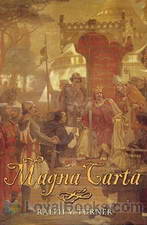 Magna Carta
Magna Carta
The original document is in Latin so this can only be a fairly rough approximation of the actual content. The text used is the first version in the Gutenberg collection. – Magna Carta is the most significant early influence on the long historical process that has led to the rule of constitutional law today. Magna Carta was originally created because of disagreements between the Pope, King John and his English barons over the rights of the King. Magna Carta required the king to renounce certain rights and respect certain legal procedures and to accept that the will of the king could be bound by law. | |
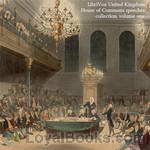 United Kingdom House of Commons Speeches Collection
United Kingdom House of Commons Speeches Collection
This collection comprises recordings of 17 historic speeches given to the UK House of Commons between 1628 and 1956. Readings are of speeches origninally given by parliamentarians including Oliver Cromwell, Edmund Burke, William Wilberforce, William Gladstone, Keir Hardie, Winston Churchill and Aneurin Bevan. | |
By: The Venerable Bede (673-735) | |
|---|---|
 Ecclesiastical History of England
Ecclesiastical History of England
Bede's Ecclesiastical History of England is a work in Latin by Bede on the history of the Christian Churches in England, and of England generally; its main focus is on the conflict between Roman and Celtic Christianity. It is considered to be one of the most important original references on Anglo-Saxon history. It is believed to have been completed in 731, when Bede was approximately 59 years old. Divided into five books, it covers the history of England, ecclesiastical and political, from the time of Julius Caesar to the date of its completion (731)... | |
By: Unknown | |
|---|---|
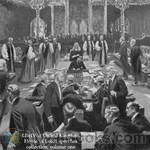 United Kingdom House of Lords Speeches Collection
United Kingdom House of Lords Speeches Collection
This collection comprises recordings of seven historic speeches given to the UK House of Lords between 1641 and 1945. Readings are of speeches origninally given by the 1st Earl of Strafford (Thomas Wentworth), the 1st Earl of Chatham (William Pitt the Elder), the 6th Baron Byron (the poet Lord Byron), the 1st Duke of Wellington (Arthur Wellesley), the 3rd Earl of Lucan (George Lord Bingham) and the 3rd Earl Russell (the philosopher Bertrand Russell). | |
By: Charles Dickens (1812-1870) | |
|---|---|
 Charles Dickens 200th Anniversary Collection Vol. 1
Charles Dickens 200th Anniversary Collection Vol. 1
The Charles Dickens 200th Anniversary Collection comprises short works - fiction, essays, poetry, letters, magazine articles and speeches - and each volume will be a pot pourri of all genres and periods of his writing. This first volume is released on Dickens' 200th birthday, February 7th 2012. Further volumes will follow during the anniversary year.Volume 1 includes short stories including, amongst others, The Holly Tree, the first part of Holiday Romance and three pieces from Mugby Junction.Some... | |
By: Calista McCabe Courtenay | |
|---|---|
 George Washington
George Washington
In this biography for young people, Calista McCabe Courtenay takes the reader from George Washington the surveyor to his early military career, first as a colonel in the Virgina militia and then as a member of General Braddock'a staff during the French and Indian War. He later commanded the Virginia forces before joining the First Continental Congress. Much of the book is devoted to his campaigns during the American Revolution. At the end, we see him as President for two terms. | |
By: Upton Sinclair (1878-1968) | |
|---|---|
 The Machine
The Machine
Upton Sinclair is best known for his novel The Jungle, an expose of the meatpacking industry. He was also a playwright whose works for the stage reflected the same progressive viewpoints found in his other writing. In The Machine, published as part of Sinclair's 1912 collection Plays of Protest, Socialist activists show a rich man's daughter the truth about the society in which she has been raised. | |
By: Friedrich Engels (1820-1895) | |
|---|---|
 Socialism: Utopian and Scientific
Socialism: Utopian and Scientific
The main idea of "Socialism: Utopian and Scientific" (1880) was distinguishing scientific socialism and utopian socialism. Engels begins by chronicaling the thought of utopian socialists, starting with Saint-Simon. He then proceeds to Fourier and Robert Owen. In chapter two, he summarizes dialectics, and then chronicles the thought from the ancient Greeks to Hegel. Chapter three summarizes dialectics in relation to economic and social struggles, essentially echoing the words of Marx. | |
By: Camille Flammarion (1842-1925) | |
|---|---|
 Omega: The Last Days of the World
Omega: The Last Days of the World
Omega: The Last Days of the World is a science fiction novel by astronomer Camille Flammarion. On 25th century Earth, a comet is on a path to collide with the Earth ending it all. Astronomers predict different scenarios as to how they will all die depending on the chemical composition of the comet. Omega probes the philosophical and political consequences that arise as the human race faces the end of the world. | |
By: Various | |
|---|---|
 Catholic and Anti-Catholic History
Catholic and Anti-Catholic History
G.K. Chesterton and James Walsh join Hilaire Belloc in an energetic rollout of the means by which history becomes propaganda, to the damage, not only to truth, but to the human soul. | |
By: H. G. Wells (1866-1946) | |
|---|---|
 Anticipations
Anticipations
Wells considered this book one of his most important, a natural follow-up to such works as his Man of the Year Million and The Time Machine. His goal was to get people to think and act in new ways. The book starts with a look at how humans get along socially and how they carry out their business ventures. It then discusses how these elements influence others, such as politics, the world of work, and education. H. G. tried to make clear how the current social order was disintegrating without preparing another to take its place. He then traced the roots of democracy, which in its present state he saw as unworkable. Instead, he proposed a new republic. He also critiqued modern warfare. | |
By: Miriam Michelson (1870-1942) | |
|---|---|
 A Yellow Journalist
A Yellow Journalist
Rhoda Massey is a young, sharp reporter for a daily newspaper in San Francisco. After proving herself an astute and fearless investigator on her first big story, she spends most of her waking hours running down leads and doing (almost) anything it takes to produce headline grabbing tales and to be the first one to do so. She must compete with her male colleagues where she works but also with those from other newspapers. Rhoda discovers it useful to be pretty and small in stature (great for eavesdropping from tight and unusual locations) but it's her shrewd mind and her nose for news that propel her to pursue stories in dangerous places and, sometimes, from dangerous characters... | |
By: Elizabeth Cady Stanton (1815-1902) | |
|---|---|
 Eighty Years and More; Reminiscences 1815-1897
Eighty Years and More; Reminiscences 1815-1897
Elizabeth Cady Stanton was one of the premier movers in the original women’s rights movement, along with Susan B. Anthony, her best friend for over 50 years. While Elizabeth initially stayed home with her husband and many babies and wrote the speeches, Susan went on the road to bring the message of the women’s rights movement to an often hostile public. When black men were given the vote in 1870, Susan and Elizabeth led the women’s rights establishment of the time to withhold support for a bill that would extend to black men the rights still denied for women of all colors... | |
By: Plato (424-348 BC) | |
|---|---|
 Laws
Laws
Νόμοι (Laws) is Plato's final dialogue written after his attempt to advise the tyrant Dionysius II of Syracuse. The dialogue takes place between: an Athenian Stranger (Socrates? A god in human form?); the quiet Lacedaemonian Megillus; and the Cretan Cleinias. The Stranger asks whether humans live to be more effective at waging war or if there is something more important a legislator should seek to achieve. During their pilgrimage Cleinias discloses his role in the establishment of a new colony... | |
By: Henry Morgenthau (1856-1946) | |
|---|---|
 Ambassador Morgenthau's Story
Ambassador Morgenthau's Story
Ambassador Morgenthau’s memoirs of his years in the service of the United States in Constantinople, (today Istanbul), are an important primary historical resource for the study of the dissolution of the Ottoman Empire and the Armenian Genocide. During this genocide, approximately 1,500,000 Armenians living in Anatolia were murdered in an attempt to rid Turkey of its non-Turkish populations. Mr. Morgenthau left Turkey a frustrated man, having done all that he was able through diplomatic circles to halt the murders, to no avail... | |
By: Theodore Roosevelt (1858-1919) | |
|---|---|
 Strenuous Life: Essays and Addresses of Theodore Roosevelt, The
Strenuous Life: Essays and Addresses of Theodore Roosevelt, The
This book is a collection of Theodore Roosevelt’s published commentaries and public addresses on the general theme of the requirements for individual and collective success in the personal, civic, political, and social arenas. (Introduction by Bob Neufeld) | |
By: Jacob A. Riis (1849-1914) | |
|---|---|
 Neighbors – Life Stories of the Other Half
Neighbors – Life Stories of the Other Half
These stories have come to me from many sources—some from my own experience, others from settlement workers, still others from the records of organized charity, that are never dry, as some think, but alive with vital human interest and with the faithful striving to help the brother so that it counts. They have this in common, that they are true. For good reasons, names and places are changed, but they all happened as told here. I could not have invented them had I tried; I should not have tried if I could... | |
By: Mark Twain | |
|---|---|
 Anti-imperialist writings
Anti-imperialist writings
This audiobook is a collection of Mark Twain's anti-imperialist writings (newspaper articles, interviews, speeches, letters, essays and pamphlets). | |
By: Ella Middleton Tybout (1871-1952) | |
|---|---|
 The Wife of the Secretary of State
The Wife of the Secretary of State
In this political thriller set at the turn of the 20th century, several lives, both of Washington insiders and those on the periphery, intersect over the issue of some stolen diplomatic papers. And what hidden secrets bind Mrs. Redmond, the wife of the Secretary of State, to the unscrupulous Count Valdmir, the Russian ambassador? Politics, power, and intrigue combine in this novel, first published in 1905. | |
By: John Relly Beard (1800-1876) | |
|---|---|
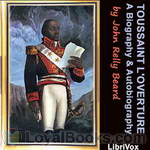 Toussaint L’Ouverture: A Biography and Autobiography
Toussaint L’Ouverture: A Biography and Autobiography
François-Dominique Toussaint L’Ouverture (1743-1803) rose to fame in 1791 during the Haitian struggle for independence. In this revolt, he led thousands of slaves on the island of Hispañola to fight against the colonial European powers of France, Spain and England. The former slaves ultimately established the independent state of Haiti and expelled the Europeans. L’Ouverture eventually became the governor and Commander-In-Chief of Haiti before recognizing and submitting to French rule in 1801... | |
By: Various (1833-1884) | |
|---|---|
 John Stuart Mill; His Life and Works
John Stuart Mill; His Life and Works
This biography is actually a series of essays by prominent personalities of the time that shed light on John Stuart Mill's life and areas of endeavor. Those areas include his experiences in India House, his moral character, certain botanical explorations, how effective he was as a critic, studies in morals and the law, and discoveries concerning political economy. They also explore ideas concerning his influence on institutions of higher learning, accomplishments as a politician, and fame as a philosopher. | |
By: Marcus Tullius Cicero (106-43 BC) | |
|---|---|
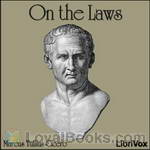 On the Laws
On the Laws
De Legibus (On the Laws) is a philosophical dialogue between: Cicero's friend Titus Pomponius Atticus; Cicero's brother Quintus; and Cicero himself. The dialogue is written in the style of Plato who was greatly revered by Cicero. De Legibus forms a continuation of Cicero's own work De re Publica (On the Commonwealth or On the Republic) and is also a response to Plato's work Νόμοι (Laws). It is unknown how many books the work originally contained but several complete books have been lost. Cicero's... | |
By: United States Senate Committee on Armed Services | |
|---|---|
 Report of the Inquiry into the Role and Oversight of Private Security Contractors in Afghanistan
Report of the Inquiry into the Role and Oversight of Private Security Contractors in Afghanistan
The Inquiry into the Role and Oversight of Private Security Contractors in Afghanistan, which reported in September 2010, was precipitated by events in August 2008, when US forces bombed the Afghan village of Azizabad. This gave rise to a public dispute between the US Government and the United Nations about the level of fatalities caused by the attack and about whether those killed had been civilians or Taliban-linked insurgents. Allegations soon emerged that the attack had been based on false information deliberately fed to the US military by Afghan employees of ArmorGroup, a private security contractor, and that these employees were engaged in murder and anti-coalition activities... | |
By: Percy Bysshe Shelley (1792-1822) | |
|---|---|
 The Masque of Anarchy
The Masque of Anarchy
The Masque of Anarchy was Shelley's response to the Peterloo massacre at St Peter's Fields, Manchester, where 18 died and hundreds were injured, after Hussars charged into a rally for parliamentary reform. Written in Italy in 1819, the poem was not published until 1832, ten years after Shelley's death. This reading is from the first published edition with the addition of three words that were inserted in full only in later additions ('Eldon' in Stanza IV and 'Bible' and 'Sidmouth' in Stanza VI). The poem is preceded by Leigh Hunt's preface to the 1932 edition and followed by Harry Buxton Forman's 1887 lecture on the poem to the Shelley Society. | |
By: Josiah Priest (1788-1851) | |
|---|---|
 Bible Defence of Slavery
Bible Defence of Slavery
The full title of this book is Bible Defense of Slavery; and Origin, Fortunes, and History of the Negro Race, by Rev. Josiah Priest, A. M. 5th edition. This is a compilation of pro-slavery literature and propaganda that went through numerous editions in the Southern United States before the Civil War. It contains the highly influential book, Slavery, as it Relates to the Negro, or African Race, by Rev Josiah Priest, which was originally published in 1843. This compilation also includes many essays and favorable reviews of Rev Priest’s book from contemporary magazines and newspapers, and written endorsements from national politicians... | |
By: William Morris (1834-1896) | |
|---|---|
 Signs of Change
Signs of Change
In the 1880s William Morris, the artist and poet famously associated with the Arts and Crafts movement, left the Liberal Party and threw himself into the Socialist cause. He spoke all over the country, on street corners as well as in working men's clubs and lecture halls, and edited and wrote for the Socialist League's monthly newspaper. Signs of Change is a short collection of his talks and writings in this period, first published in 1888, covering such topics as what socialism and work should be, and how capitalism and waste developed. | |
By: Francis Archibald Bruton (1860-1929) | |
|---|---|
 Three Accounts of Peterloo
Three Accounts of Peterloo
A companion volume to F.A. Bruton's 'The Story of Peterloo', the full title of this short collection is 'Three Accounts of Peterloo by Eyewitnesses, Bishop Stanley, Lord Hylton, John Benjamin Smith with Bishop Stanley's Evidence at the Trial'. The three contemporary accounts, each with a short introduction by the editor, give different perspectives on the events of 16 August 1819, when a troop of Hussars accompanied by the local Yeomanry rode into a peaceful reform rally at St. Peter's Fields, Manchester, leaving 18 dead and more than 700 injured. | |
By: James Thomson (1834-1882) | |
|---|---|
 Satires and Profanities
Satires and Profanities
"Believing as I do that James Thomson is, since Shelley, the most brilliant genius who has wielded a pen in the service of Freethought, I take a natural pride and pleasure in rescuing the following articles from burial in the great mausoleum of the periodical press. There will doubtless be a diversity of opinion as to their value. One critic, for instance, has called “The Story of a Famous Old Jewish Firm” a witless squib; but, on the other hand, the late Professor Clifford considered it a piece of exquisite mordant satire worthy of Swift... | |
By: Unknown (384 BC - 322 BC) | |
|---|---|
 The Athenian Constitution
The Athenian Constitution
| |
By: Gene Sharp (1928-) | |
|---|---|
 There Are Realistic Alternatives
There Are Realistic Alternatives
Violence in society and politics, whether in the form of war, terrorism, dictatorship, oppression, usurpation, or genocide, is widely recognized as a grave problem. The objective of this essay is to explore a different perspective on the nature of the problem of widespread violence in society and politics that suggests what will be required for its resolution. We need to analyze the conditions under which it will be possible to reduce drastically the reliance on military and other violent means of conflict. We need to examine why violence is so widely regarded as necessary for good causes as well as for bad ones, and how fundamental change away from that syndrome might be achieved. | |
By: Various | |
|---|---|
 Supplement to "Punch", 16th December 1914 The Unspeakable Turk
Supplement to "Punch", 16th December 1914 The Unspeakable Turk
| |
 Essays in Liberalism Being the Lectures and Papers Which Were Delivered at the Liberal Summer School at Oxford, 1922
Essays in Liberalism Being the Lectures and Papers Which Were Delivered at the Liberal Summer School at Oxford, 1922
| |
By: Anonymous | |
|---|---|
 The Causes of the Rebellion in Ireland Disclosed In an Address to the People of England
The Causes of the Rebellion in Ireland Disclosed In an Address to the People of England
| |
By: Various | |
|---|---|
 US Presidential Inaugural Addresses
US Presidential Inaugural Addresses
| |
By: Anonymous | |
|---|---|
 The British North America Act, 1867
The British North America Act, 1867
| |
By: Various | |
|---|---|
 Debate on Woman Suffrage in the Senate of the United States, 2d Session, 49th Congress, December 8, 1886, and January 25, 1887
Debate on Woman Suffrage in the Senate of the United States, 2d Session, 49th Congress, December 8, 1886, and January 25, 1887
| |
By: BS Murthy | |
|---|---|
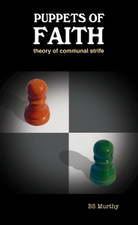 Puppets of Faith: Theory of Communal Strife
Puppets of Faith: Theory of Communal Strife
When a bunch of apparently non-practicing Musalmans headed by Mohamed Atta launched that fidayeen attack on New York’s World Trade Centre that Sep 11, the world at large, by then familiar with the ways of the Islamic terrorism, was at a loss to fathom the unthinkable source of that unexpected means of the new Islamist scourge. The symptoms of a latent terrorist in the Muslim youth can be traced to the sublimity of Muhammad's preaching’s in Mecca and the severity of his Medina sermons make Islam a Janus-faced faith that forever bedevils the mind of the Musalmans... | |
By: Abdu’l-Bahá ‘Abbás (1844-1921) | |
|---|---|
 Mysterious Forces of Civilization
Mysterious Forces of Civilization
The Mysterious Forces of Civilization (Persian: Risálih-i-Madaníyyih) is a work written before 1875 by ‘Abbás Effendí, known as ‘Abdu’l-Bahá (the Servant of Bahá) (1844-1921). The Persian text was first lithographed in Bombay in 1882 and printed in Cairo in 1911. ‘Abdu’l-Bahá was the eldest son and appointed successor of Bahá’u’lláh, the Founder of the Bahá’í Faith. The original text of this work was written and published anonymously, and the first English translation (by Johanna Dawud) was published in London in 1910 and Chicago in 1918, under the title ‘Mysterious Forces of Civilization’ written by "an Eminent Bahai Philosopher... | |
By: Charles-Louis de Secondat, baron de La Brède et de Montesquieu (1689-1755) | |
|---|---|
 Spirit of Laws (Volume 1)
Spirit of Laws (Volume 1)
This audiobook covers Volume 1 (Books I to XIX) of "The Spirit of the Laws" (French: De "l'esprit des lois", also sometimes called "The Spirit of Laws"). Spirit of Laws is a treatise on political theory first published anonymously by Charles de Secondat, Baron de Montesquieu in 1748 with the help of Claudine Guérin de Tencin. Originally published anonymously partly because Montesquieu's works were subject to censorship, its influence outside of France was aided by its rapid translation into other languages... | |
By: George Eliot (1819-1880) | |
|---|---|
 Felix Holt, The Radical
Felix Holt, The Radical
"Harold Transome is a landowner who goes against his family's political tradition (much to his mother's distress), while Felix Holt is a sincere radical. The setting of the book, the 1832 parliament election, is used to discuss the social problems of that time. A secondary plot involves Esther Lyon, the stepdaughter of a minister who is the real heiress to the Transome estate, with whom both Harold Transome and Felix Holt fall in love. Esther loves poor Felix Holt, but would she choose a comfortable life with Harold Transome?" | |
By: An Anti-Slavery Convention of American Women (1837-1837) | |
|---|---|
 Address to Free Colored Americans
Address to Free Colored Americans
The first Anti-Slavery Convention of American Women met in New York City in May, 1837. Members at the Convention came from all walks of life and included such prominent women as Mary Parker, Lucretia Mott, the Grimke sisters, and Lydia Maria Child. One outcome of this important event was a statement of the organization’s role in the abolitionist movement as expressed in AN ADDRESS TO FREE COLORED AMERICANS, which begins: “The sympathy we feel for our oppressed fellow-citizens who are enslaved... | |
By: Charles C. Nott (1827-1916) | |
|---|---|
 Mystery of the Pinckney Draught
Mystery of the Pinckney Draught
Charles Pinckney, member of the South Carolina legislature, Confederation Congress, U.S. Congress, and notably the Constitutional Convention of 1787, may have been regarded by some as perhaps the true author of the U.S. Constitution, although most likely James Madison would vehemently argue the point. This book investigates what may, or may not have happened to the draft of the Constitution which was drawn up by Charles Pinckney and submitted to the Constitutional Convention in May of 1787, and how (or if) it differed from the Constitution which was adopted... | |
By: Errico Malatesta (1853-1932) | |
|---|---|
 Anarchy
Anarchy
Anarchy explained by the anarchist Errico Malatesta. | |
By: Thomas Paine (1737-1809) | |
|---|---|
 Age of Reason (version 2)
Age of Reason (version 2)
The Age of Reason; Being an Investigation of True and Fabulous Theology is a pamphlet, written by a British and American revolutionary Thomas Paine. The Age of Reason challenges institutionalized religion and challenges the legitimacy of the Bible, the central sacred text of Christianity. Published in three parts in 1794, 1795, and 1807, it was a bestseller in the United States, where it caused a short-lived deistic revival. Part 1 was written sometime in 1793, and attacks the concepts of divine revelation and inspiration... | |